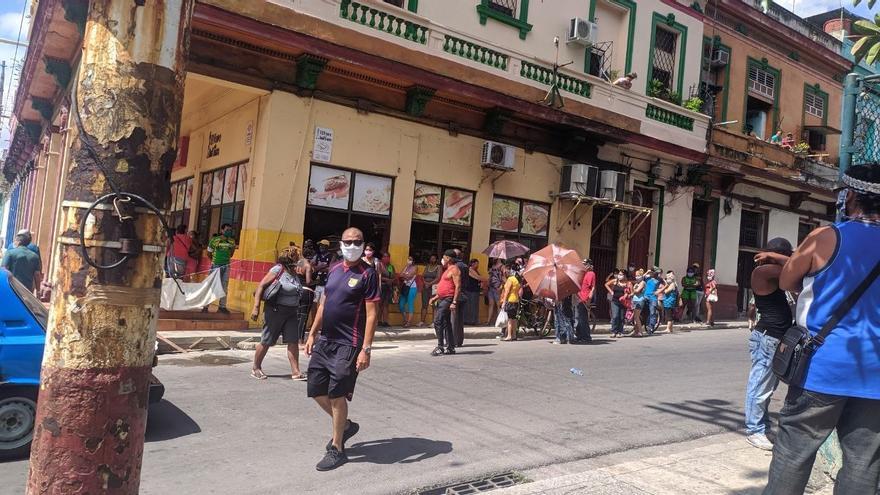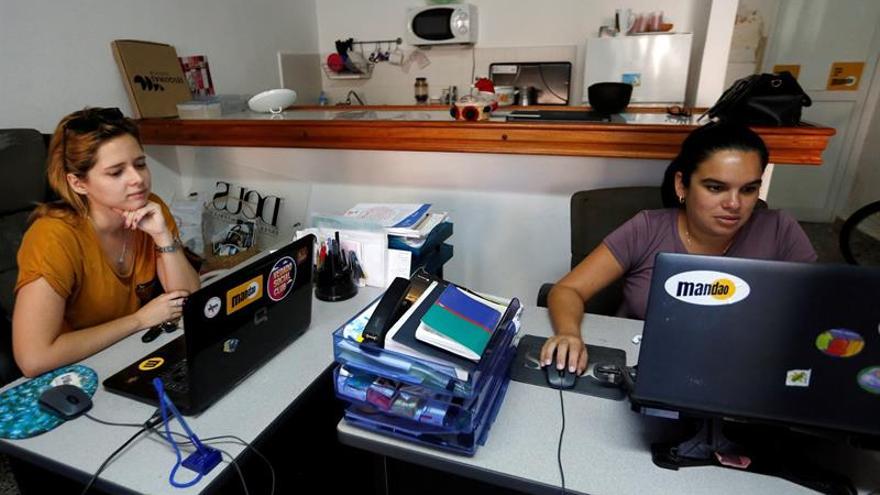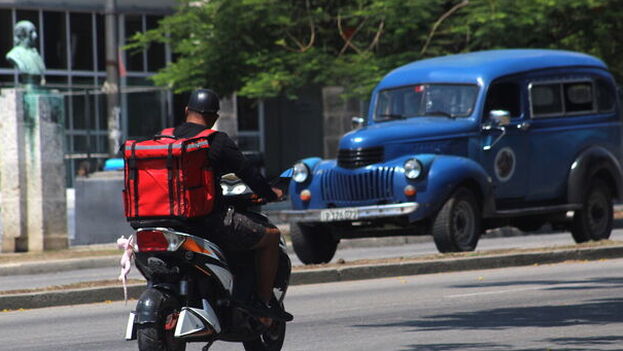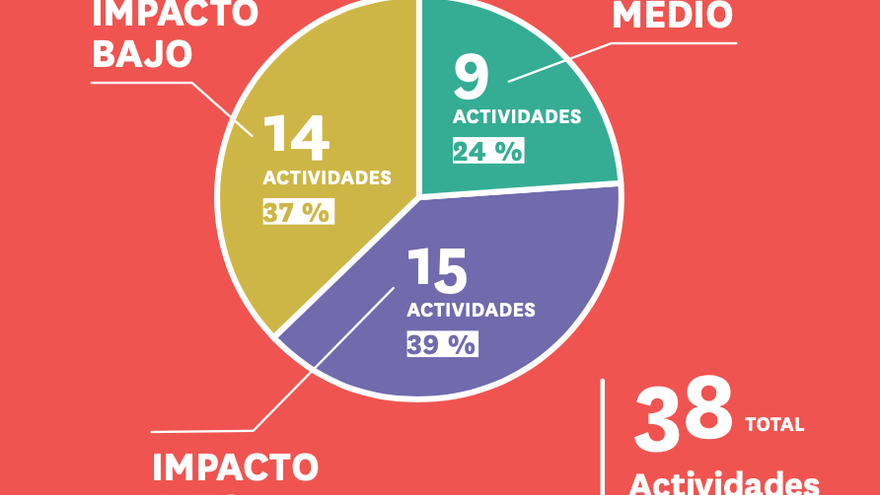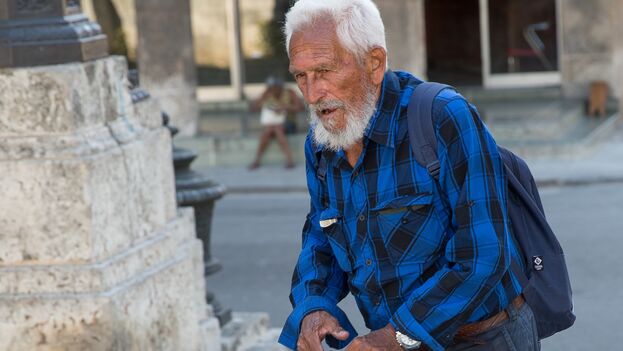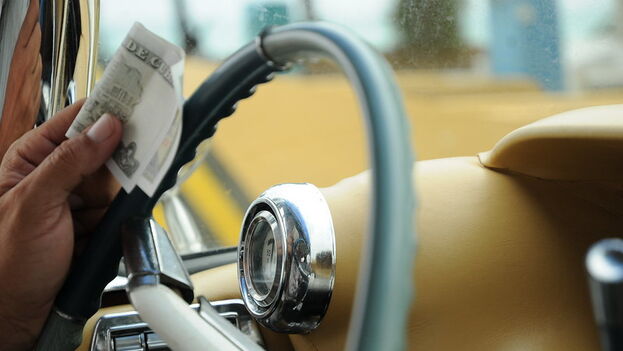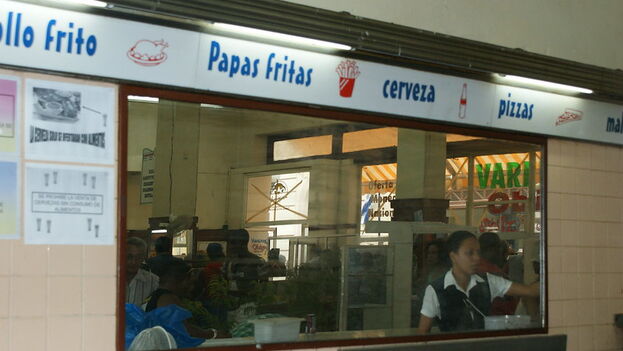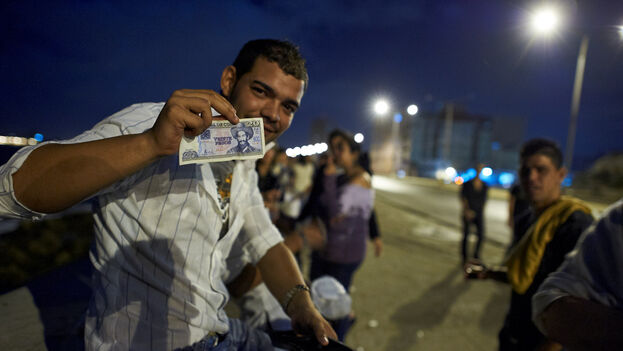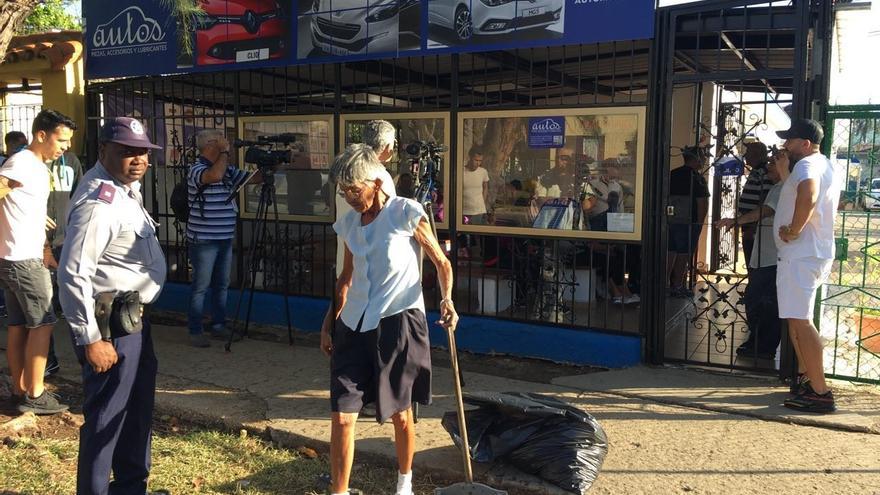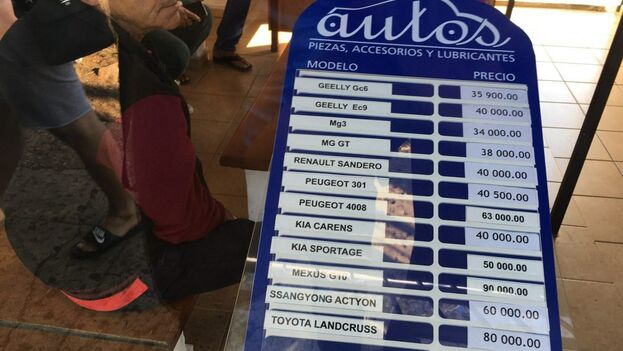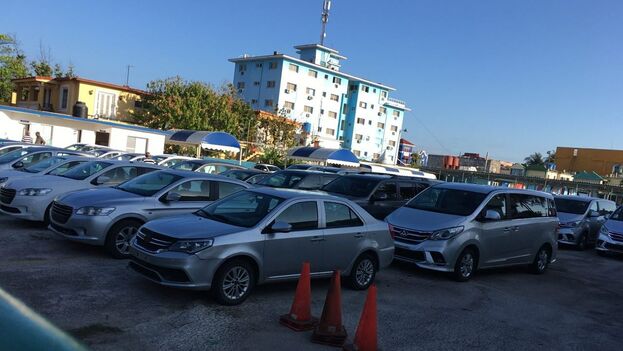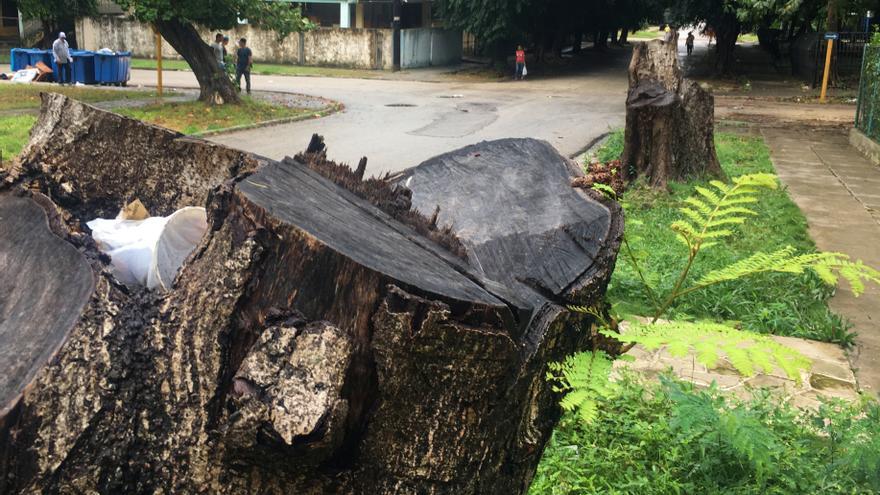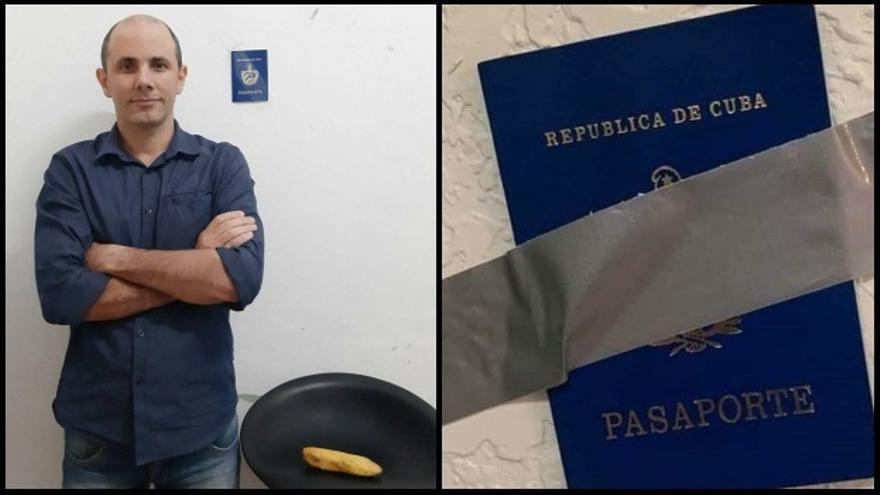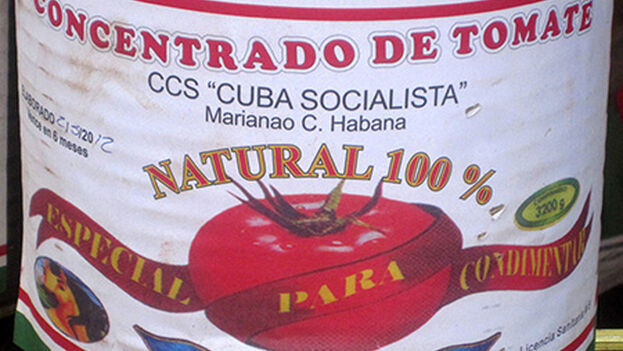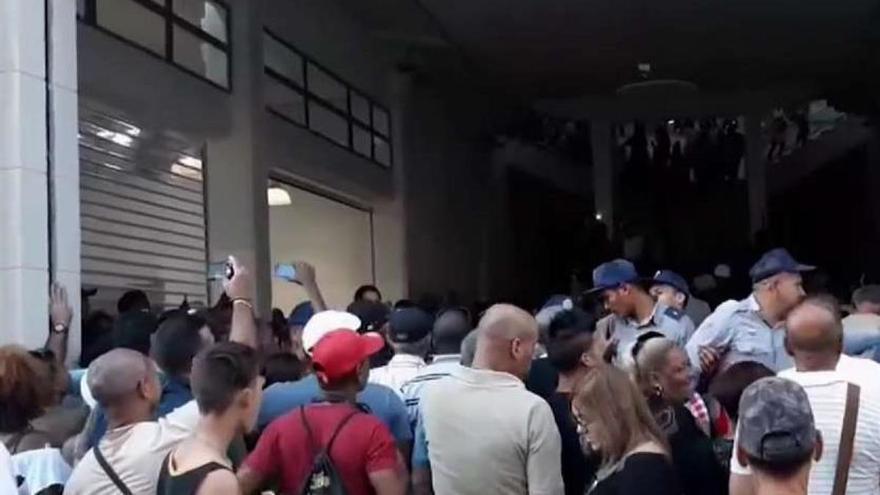
![]() 14ymedio, Marcelo Hernández, Havana, 8 July 2020 — “What is the mattress size and what quality?” It was the message that Ángel Guzmán received through WhatsApp a few hours after posting an ad on an online classifieds site. The fact that the client wrote in this way “so correct, with the accents and everything” prompted him to take the merchandise to his home even though he’d never seen his face.
14ymedio, Marcelo Hernández, Havana, 8 July 2020 — “What is the mattress size and what quality?” It was the message that Ángel Guzmán received through WhatsApp a few hours after posting an ad on an online classifieds site. The fact that the client wrote in this way “so correct, with the accents and everything” prompted him to take the merchandise to his home even though he’d never seen his face.
“People who write me with mistakes do not look good to me and I cannot risk moving a product from one municipality to another and meet someone who’s not serious who rejects the mattress or does not want to pay me,” the sharp merchant tells 14ymedio. “Someone who writes me calling me puro, bro, asere or tío, I don’t even answer them. I don’t do business with people who write like that.”
Nothing in his education seemed to destine him to have that level of demand in the use of the language. From working-class parents, as a teenager, most of his Spanish classes in elementary school were taken through the so-called teleclasses. “No one was watching the television and the ‘emerging teacher‘ we had wrote with a lot of misspellings on the board.” He admits that he has not read much either and that in his house “there is not a single book.” continue reading
The most important language lesson of his life was learned when he lost a big transaction. “A woman contacted me through Telegram and told me that she was interested in a complete bedroom set: bed, mattress, display cabinet, chest of drawers and bedside tables. It totaled were more than 2,500 convertible pesos,” says this 25-year-old man from Havana.
It took Guzmán three days to organize the order with the help of carpenters dedicated to the private production of furniture. “I rented the truck and prepared everything, but I did not notice that all the messages that woman sent me were very poorly written. I hardly understood anything and that should have warned me she wasn’t a person capable of closing on an order like that.”
The suspicion materialized. The day he arrived in front of the customer’s door with all the furniture on the truck, she told him that she had changed her mind. “She treated me very badly, in a very rude way, even the husband threatened to call the police if I didn’t take back the entire order. They didn’t even look at the bedroom set, they just changed their minds or maybe they never had all the money. I stayed and they hosted me,” he regrets.
In 2009, the Ministry of Higher Education, alarmed by the evident deterioration of written expression in Cuba, decided to take measures to prevent future professionals from leaving the universities with serious misspellings. A national diagnosis made in the middle of the same year brought to light alarming problems with accents, punctuation and verbal conjugations.
But little has changed in a decade. Errors in writing and speaking are frequent in the national media. Recently, a presenter on the television newscast called Juan Guaidó “the intrauterine president of Venezuela” instead of using the correct word: “interim.” The headlines of the main news programs are riddled with a lack of accents, changed letters and incorrect uses of certain words.
Nely runs a thriving home delivery business that has grown significantly with the pandemic. Through instant messaging services, she offers her products, closes deals with customers and plans delivery. “They once wrote to me asking if I had chickpeas but the word was written in a way that I didn’t understand what they wanted.”
Nely admits to turning on the automatic spellchecker and asking someone close to her whenever she has a question about how to spell a word. “My business is to convince clients without having to call them, because that consumes more data and can be more dangerous, so I have to write well without excessive familiarity or mistakes.”
The popular greetings used on the street — “¿Qué bolá?” (What’s up) or “¿Cómo está la cosa?” (How’re things) — are not appreciated either. “It’s one thing in a Telegram group where people are sharing information on merchandise and prices, but it’s another thing when you’re putting in an order with a seller. Then you have to seem serious and respectful, and if you don’t see it that way, I say I don’t have any of the product left and that’s it.”
“Vusco toayas de taya grande,” [‘I’m looking for large towels’ – with 3 of 5 words misspelled], reads a merchant on her mobile phone. She imports furnishing, appliances and household goods from Panama. “I never bragged about having good spelling, because I didn’t even finish the 9th grade, but I have to ask my son to help me understand what they are trying to say in that message.”
“My son who is studying at the university told me: Mami, you don’t have to wait for Cervantes* to sell something, but be careful with those people who write with their feet,” acknowledges the informal vendor.
For “At Your Service,” a small private business that was born with the restrictions of the pandemic to bring products to the homes during the confinement, it is very clear. “The person who communicates via WhatsApp and takes the orders is a graduate in philosophy and has very good spelling, the rest of us are only dedicated to transporting orders.”
“When someone writes to us, they can be sure that we will say ‘good morning’, we will be kind and we will write without mistakes. With that we already have half the business done,” he says.
At “Your Space,” another food delivery business, they have also chosen to shore up their written communication. “Before, I worked in a restaurant and when we wanted to hire waiters, I was looking for young people with good looks, mainly beautiful people with a nice smile,” says Jorge Ángel Chang, the manager of the initiative.
“Now, when I had to look for the two people to manage our WhatsApp account, and Telegram and the messages on Facebook, I only paid attention to whether — if they were women — they had short nails, because typing with long nails is very problematic, whether they knew how to write well and treat customers with kindness, and of course, they had to have excellent spelling because that is ‘our face’’ today. In the end, I have a retired teacher and an editor working from home.”
*Translator’s note: Miguel Cervantes (b. 1547) is a Shakespeare-like figure with regards to his use of and influence on the Spanish language. See here.
________________
COLLABORATE WITH OUR WORK: The 14ymedio team is committed to practicing serious journalism that reflects Cuba’s reality in all its depth. Thank you for joining us on this long journey. We invite you to continue supporting us by becoming a member of 14ymedio now. Together we can continue transforming journalism in Cuba.

